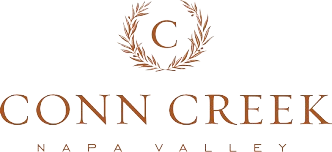California Transparency in Supply Chains Act
The California Transparency in Supply Chains Act of 2010 (Calif. Civil Code § 1714.43) requires manufacturers and retailers to provide information on their efforts to address risks of slavery and human trafficking in their supply chains so that consumers can make more informed choices about the products they buy and the companies they choose to support.
Each day Conn Creek Winery works with hundreds of businesses that help us produce and market our products. Across Conn Creek Winery, we work to build relationships with reputable suppliers who share our commitment to conduct business in a responsible manner in compliance with applicable laws and respect the rights of workers to a safe working environment.
We outline our expectations for suppliers in our Supplier Code of Conduct.
Although our operations and sourcing are largely concentrated in the U.S., we understand that our actions may also affect those beyond our border. Respect for people is fundamental to the way we conduct business.
As a condition of our business relationship, supplier contracts typically require compliance with all applicable laws, including those addressing child and forced labor. Additionally:
- Supplier Verification. Conn Creek Winery conducts reviews that occur at a minimum of annually. The review could include an assessment focusing on performance against quality, compliance, service and delivery, cost and innovation. Conn Creek Winery does not currently verify its supply chain to specifically evaluate and address risks of human trafficking and slavery.
- Supplier Audits. Based on a range of factors including our evaluation of risk, we conduct periodic supplier reviews and announced assessments and on-farm visits. These reviews assess compliance with contractual requirements and applicable laws, although Conn Creek Winery does not specifically evaluate supplier compliance with company standards for human trafficking and slavery or require direct suppliers to certify that materials incorporated into the supplier’s product comply with the laws regarding slavery and human trafficking in the country or countries in which they do business. When we learn of non-compliance issues, we notify the supplier and expect them to take corrective actions. In some situations, we require immediate action to achieve compliance, or we terminate our relationship with the supplier. In other situations, we take a continuous improvement approach and work with the supplier to improve their practices.
- Procurement professionals and strategic supplier managers’ training. All Conn Creek Winery employees are required to comply with the Company’s Code of Conduct, which states that the company does not condone the unlawful employment of children in the workplace, nor does it condone forced labor. The Code of Conduct is enforced through internal compliance training and audits and employees are trained on The Code annually. Conn Creek Winery investigates all allegations of non-compliance. If allegations are substantiated, they are addressed as appropriate, including training (or re-training) on human trafficking and slavery. At this time, Conn Creek Winery does not maintain additional accountability standards and procedures for employees or contractors specific to slavery and human trafficking, or conduct additional training specific to slavery and human trafficking for employees with direct responsibility for supply chain management.


